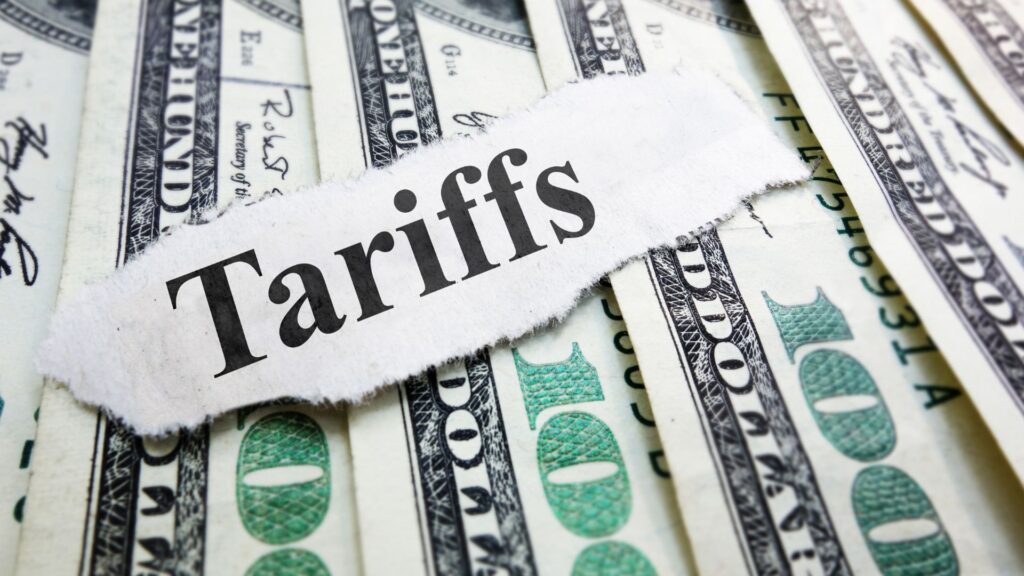January is financial wellness month! December is often known as one of the most expensive times of the year. With Christmas drinks, food, presents and decorations, it is easy to let your budget slip and spend beyond your means.
However, this can catch up with you in January. If your New Year’s resolutions involve taking control of your finances and creating a more financially-healthy 2025, read on for our best ways to promote financial wellness this month and beyond.
Set your financial goals
Working towards a set goal can keep you motivated and can help you see clear progress along the way. This could be just the one goal, or multiple spread across your chosen time period. For example, if you are saving up for a family holiday or are wanting to repay debts.
Each goal will differ depending on the amount of money you need to save or earn to achieve it, which will in turn impact on the time scale you set yourself. Repaying all your debts may take months, or even years, to achieve compared to other financial goals. It is also important to set out the steps needed to achieve each particular goal, for example deciding an amount you must save each month, or looking for extra work.
Setting clear goals, which are achievable and realistic will ensure that you are more likely to stick with them. Goals which are unachievable can be disheartening and demotivating. A goal you are passionate about can help propel you through hard times. Sharing your goals with close friends and family can also help here, as they can support you along your financial wellness journey.
Your goals are just that: yours. Only you will know what goals need to be set and how best to achieve these in order to create financial wellness this year, based on your income or lifestyle.
Alternatively, you can speak with a friendly debt advisor who will be happy to discuss your debts with you in person or over the phone.
Create a budget… and stick to it
Budgeting is key when creating financial wellness. It could be a way for you to reach your set goals and save up over the months.
The first step to creating a budget is working out what you spend on a weekly or monthly basis. Once you have accounted for essentials such as rent or mortgage payments, debt repayments or food, what you have left over is your disposable income. Your disposable income can be used for non-essential purchases over the month, any emergency payments you didn’t account for can be added to your savings account.
If your disposable income isn’t where you would like it to be, you could look at your spending and see where you can make cuts. For example, could you buy own brand in the supermarkets instead of more expensive branded items? Use energy-saving tips to reduce utility bills, overhaul any subscriptions or memberships and cut back on luxuries. See more of our favourite money saving tips here.
You could also look at increasing your income. Working overtime, picking up additional shifts, selling unused items online or getting a second job are all ways to boost your income to help with your financial goal.
We understand working, or picking up additional work, is not an option for everyone and therefore seeing what benefits you are entitled to could be the next step in creating financial wellness. Our brand new benefits calculator can tell you exactly what you could be entitled to. Read more about the benefits calculator and access the tool here.
Receiving a meaningful financial education is key to ensuring financial wellness and stability. With so much turmoil in the economy at the moment, knowing what is the best use of resources, the best savings account or otherwise can be difficult. Financial terminology is not the easiest to navigate!
If you are creating a more financially stable 2025 for you and your family, educational websites and resources could help you have a better understanding. If you are searching for online resources or courses, do make sure you have researched the company beforehand. The rule of thumb is: if it is too good to be true, it usually is! There are no shortcuts or get rich quick schemes which truly work when creating financial wellness.
Some online resources we love here at Angel Advance include:
- The Money Charity: Financial Wellbeing Workshops and Webinars
- Barclays Digital Wings
- UK Money and Legal Advice
- Martin Lewis’ Money Saving Expert
- Citizens Advice Debt and Money
Seek debt advice
Households are expected to go into, or extend, their debt over the festive period. 2024 was a financial challenge for many, with the cost of living crisis, energy crisis and rising inflation meaning that alongside festive spending, costs of essential items or services also rose.
If you are creating financial wellness by repaying your debts, we can help. Our debt advice tool is free to use, meaning you can find the perfect debt solution for you in a matter of minutes and right from the comfort of your own home. Before entering into a debt solution, you must have received debt advice and our tool can help you on your financial wellness journey, without the need to sign up with us at the end.
You can access our free debt advice tool here, or speak with a friendly debt advisor who will be happy to answer any questions you may have. We have helped over 48,000 people across the UK tackle their debts and we are ready to help you.


